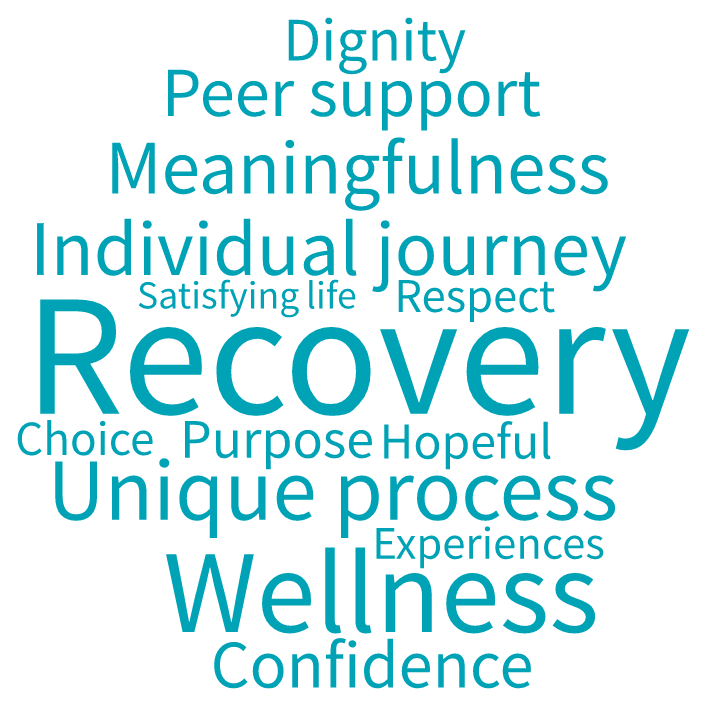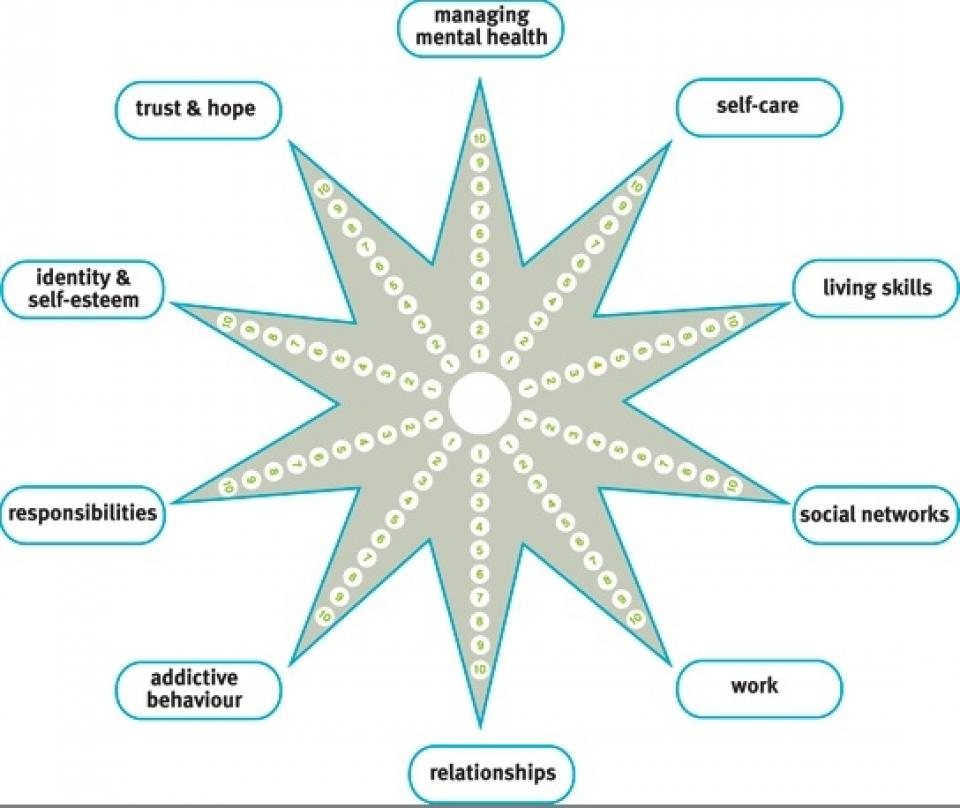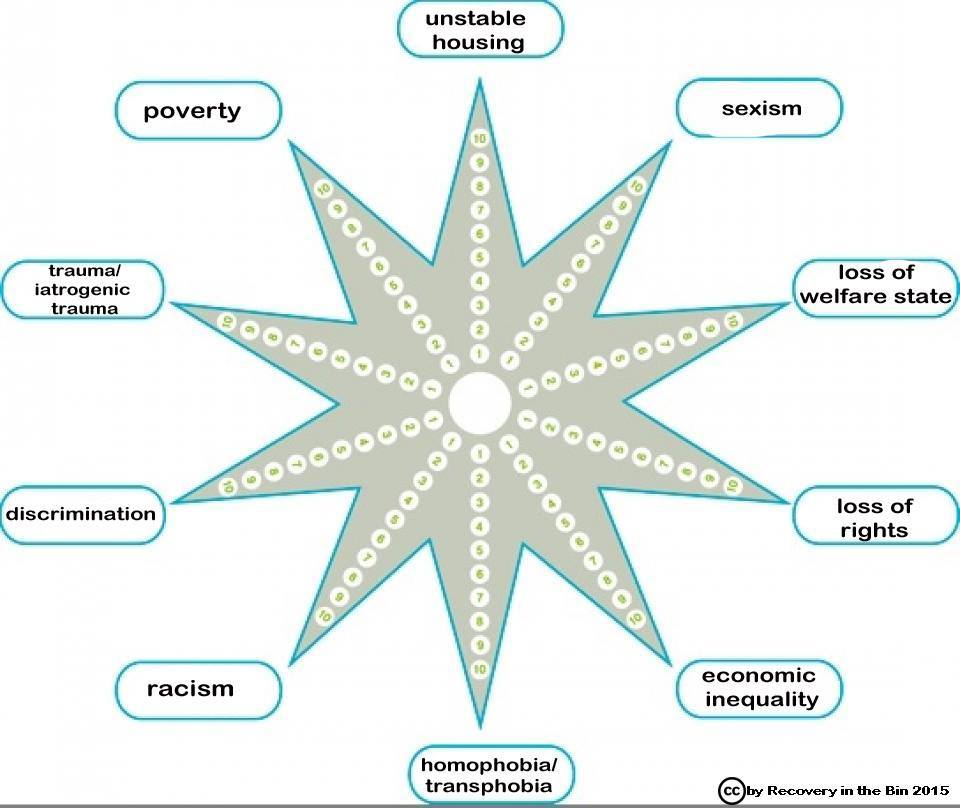Recovery
Hummelvoll et al (2015, p.4) state that there are three processes in recovery; personal (regaining self esteem and self control), social (the relationship between the individual and their environment), and spiritual (seeking a meaning in life), and that recovery develops and occurs holistically in an interchange between these processes.
While originally ‘recovery’ had its roots in the civil rights movements from the 1960's onwards that were based on ideas of self-help, empowerment and human rights and could "be seen as a political reaction against suppression, stigma and unsatisfactory services that focus on maintenance and compliance with treatment" (Hummelvoll et al, 2015, p.4), the widespread concept of recovery that is now on the policy agenda is generally focused upon the individual and their personal journey (Morrow et al, n.d.).
A commonly cited definition of recovery in the literature is that it is a “deeply personal, unique process of changing one’s attitudes, values, feelings, goals, skills and roles. It is a way of living a satisfying, hopeful and contributing life even with limitations caused by the illness. Recovery involves the development of new meaning and purpose in one’s life as one grows beyond the catastrophic effects of mental illness”. (Anthony 1993, p.13).
 (Graphic created by Tagul)
(Graphic created by Tagul)
An example of one approach for services using the recovery model in the United Kingdom is the ‘Recovery Star’, a tool that assists service staff to support individuals through their recovery journey.

(Graphic from www.mhpf.org.uk)
A social justice framework for mental health
There is an alternate view emerging (as discussed by Morrow & Weisser, 2012) that the individualised recovery model has been co-opted by professionals, is too focused upon the personal process, and does not adequately recognise or address social processes.
Based upon research in Canada, Morrow & Weisser (2012, p.29) state that “experiences of mental illness and distress, regardless of their origins, take place in a social, cultural and historical context”, and that “recovery without a full recognition of the current social and political context which has eroded social welfare supports will be impotent to foster real systemic change" (Morrow & Weisser, 2012, p.40).
A user-led group for mental health survivors and supporters who are critical of the 'recovery' model have developed the ‘Unrecovery Star’ to demonstrate how the concept of ‘recovery’ has been co-opted and colonised from its more radical roots. The ‘UnRecovery Star’ clarifies that people’s problems are not merely individual problems rooted in something wrong with an individual person such as a faulty brain, genetic abnormality, or faulty personality. The ‘UnRecovery Star’ clarifies that humans are social beings and that the determinants of distress are to be found in families, communities, wider society, and social policies. The value of the ‘UnRecovery Star’ is that it demonstrates that we need to not just pay attention to distressed people, but deal with the problems that exist in communities and wider society, and that mental health is a profoundly political issue" (Recovery in the Bin).

Learn more:
Key features of recovery-orientated organisations